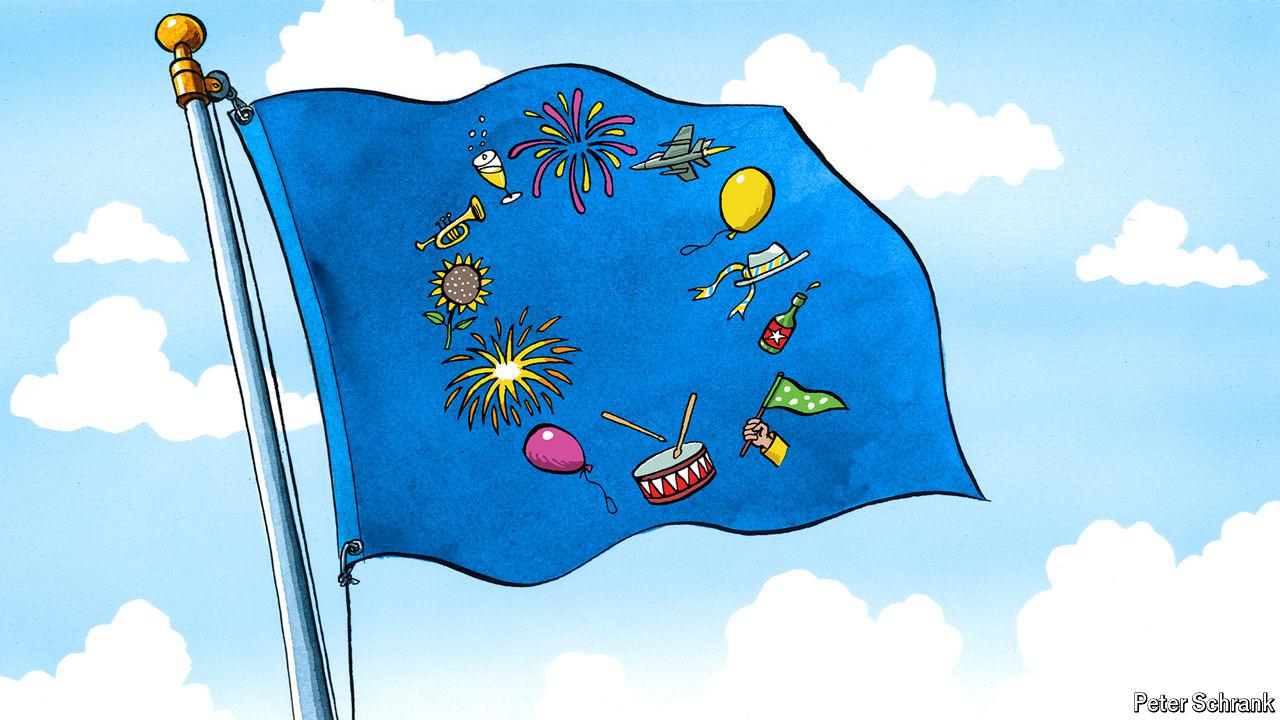
A blue EU flag displaying little icons denoting European national holidays instead of EU stars
2024-05-09 1050词 困难
Another reason to spend time away from the office this past week was Europe Day on May 9th. The occasion is the anniversary of the plan put forward in 1950 to pool the continent’s coal and steel industries which, several million meetings later, gave birth to today’s European Union. Alas, the holiday is not for the public to enjoy, but only for the 60,000-plus employees of the bloc’s institutions, most of them based in Brussels. Perhaps one day, a few million meetings hence, citizens from across a federalised union will mark the holiday together. For now the EU’s 27 members (and a dozen neighbours not in the club) jealously guard “their” national days. The occasions they choose to celebrate—revolution in France, the death of a poet in Portugal, neutrality in Austria—and the manner in which the days are spent offer a glimpse into the psyches of the continent’s citizens.
经济学人和华尔街日报的文章是会员专属
请加入会员以继续阅读完整文章
成为会员后您将享受无限制的阅读体验,并可使用更多功能
免责声明:本文来自网络公开资料,仅供学习交流,其观点和倾向不代表本站立场。